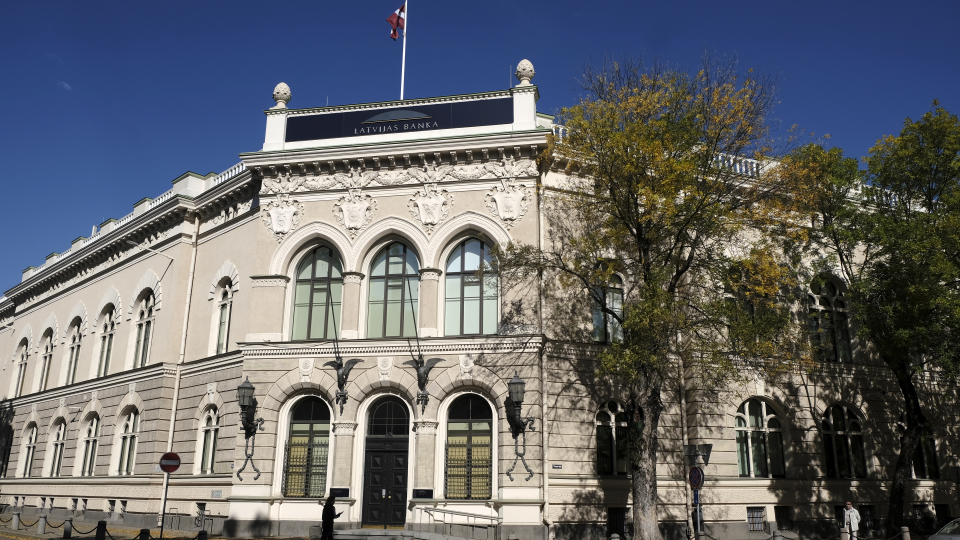LB is careful to note that its March 2022 macroeconomic forecasts for Latvia have been "prepared amid increased uncertainty".
Owing to Russia's invasion of Ukraine, growth projections of Latvia's gross domestic product (GDP) for 2022 and 2023 have been revised downwards to 1.8% and 3.2% respectively (from 4.2% in 2022 and 4.0% in 2023 in the December growth forecast).
Conversely, with confidence improving, 2024 is expected to see revival of faster economic growth, and Latvia's GDP could increase by 4.1%;
"However, the decline in economic activity caused by the war is likely to be more pronounced this year if the warfare continues or escalates and sanctions are expanded. The effects of cessation of trade with the aggressor countries can be estimated relatively precisely. However, the impact of the possible commodity shortage and deteriorating confidence is far less clear cut, and in the event of adverse developments it can reduce production, consumption and investment. This may result in a more pronounced decline in economic activity this year and a delay in acceleration of growth. Further escalation of the war would also sustain higher resource prices and inflation," the central bank warns.
Latvia's inflation projections for 2022 and 2023 have been substantially revised upwards to 9.5% and 3.7% respectively (from 6.1% in 2022 and 2.9% in 2023 in the December inflation forecast) on account of the rising global energy and food prices, which have increased further since Russia launched its unprovoked war in Ukraine.
"Russia's aggression in Ukraine will reduce global economic growth, and the uncertainty surrounding oil and gas supplies as well as the availability of alternative sources translates into high volatility of energy and other commodity prices and their elevated levels.
"With inflation hitting its historical highs, the major central banks have taken steps towards monetary policy normalisation. The challenge of monetary policy decision makers is shaping the monetary policy that reduces inflation but does not dent growth," the central bank says.
Inevitably, Latvia can expect falling exports to the aggressor countries of Russia and Belarus on account of the sanctions and payment problems as well as firms' own decisions not to do business with the invaders.
The war in Ukraine has reinforced price rises and has had an adverse effect on the purchasing power of Latvia's population. This will have uneven effects across businesses and households, though the war in Ukraine will also dampen investment activity.
|
Macroeconomic indicators: Latvijas Banka's projections |
||||
|
2022 |
2023 |
2024 |
||
|
Economic activity (annual changes; %; at constant prices; seasonally adjusted data) |
||||
|
GDP |
|
1.8 |
3.2 |
4.1 |
|
Private consumption |
|
5.4 |
4.7 |
4.4 |
|
Government consumption |
|
2.7 |
0.4 |
0.6 |
|
Investment |
|
–0.3 |
4.0 |
5.7 |
|
Exports |
|
–0.5 |
2.4 |
3.2 |
|
Imports |
|
–4.7 |
2.7 |
4.1 |
|
HICP inflation (annual changes; %) |
||||
|
Inflation |
|
9.5 |
3.7 |
2.1 |
|
Underlying inflation (excluding food and energy) |
|
4.1 |
3.5 |
3.7 |
|
Labour market |
||||
|
Unemployment (% of the economically active population; seasonally adjusted data) |
|
8.1 |
7.1 |
6.0 |
|
Nominal gross wage (annual changes; %) |
|
9.7 |
6.4 |
5.7 |
|
External sector |
||||
|
Current account balance (% of GDP) |
|
0.4 |
–0.3 |
–1.0 |
|
Government finances (% of GDP) |
||||
|
General government debt |
|
48.3 |
45.8 |
43.1 |
|
Budget surplus/deficit |
|
–5.9 |
–1.8 |
–1.1 |
More detailed information about the latest forecasts is available in the macroeconomic forecasts section of Latvijas Banka's website macroeconomics.lv. The full text of the forecasts can be found in the Macroeconomic Developments Report prepared by Latvijas Banka (https://www.makroekonomika.lv/kategorija/makro-norisu-parskats?created=2).

























